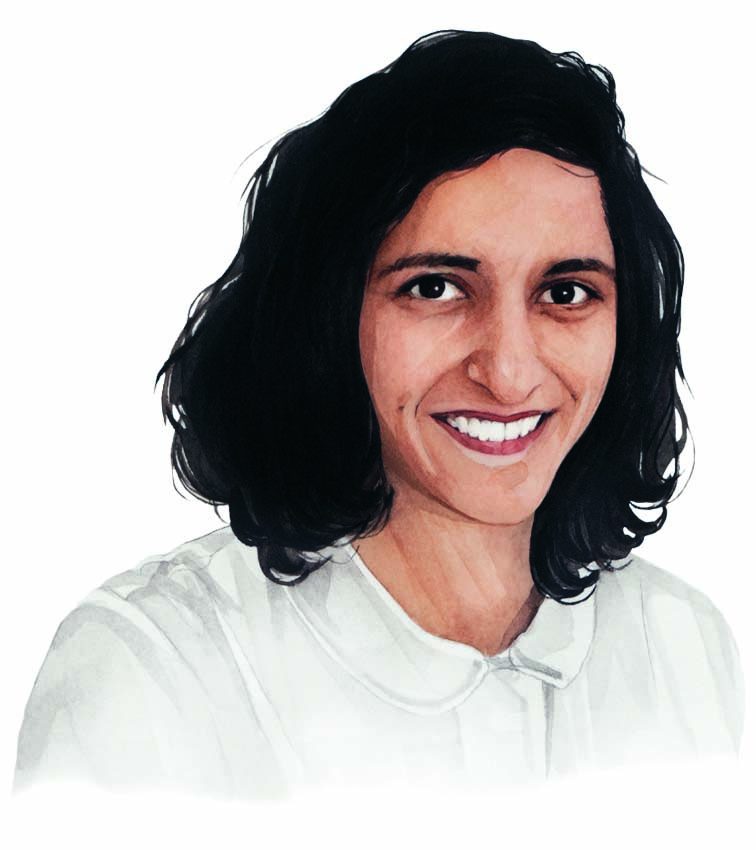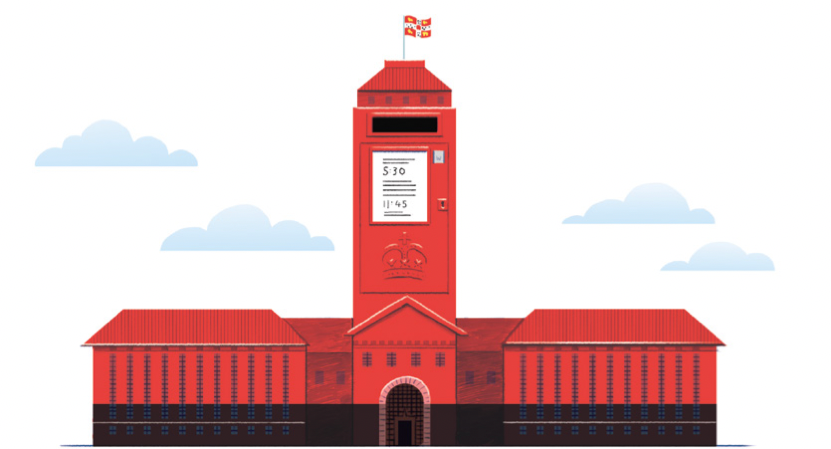Inbox 88

Editor’s Letter
Welcome to the Michaelmas Term edition of CAM. Resolving the problems of the 21st century requires fresh thinking – and well-informed thinkers. So it will come as no surprise to hear that, in Cambridge, curricula are continually assessed and reviewed. However, in the past few years, this quest has become more searching, as academics and students endeavour to ‘decolonise’ the curriculum. If you’ve ever wondered what the fuss is all about – and what it has to do with you – turn to our report.
What would Jane Austen have thought? It might sound counterintuitive, but, as Professor Janet Todd points out, the great chronicler of Georgian domestic life has much to say to the denizens of our own century.
Elsewhere, Dr Emily Shuckburgh discusses how a major new initiative, Cambridge Zero, will harness Cambridge expertise from across the University to tackle the climate emergency. We also assess what digital technology means for human rights law, and we examine the role of inflammation in heart disease, obesity and depression.
On all these topics – along with anything else Cambridge-related – we look forward to your contribution to the debate, whether by post, email or on social media.
Mira Katbamna (Caius 1995)

Inbox
Brexit
What point does Victor Launert imagine he is making (Letters, CAM 87)? He expresses concern that “no democracy can survive” a statistic showing that, if Brexit were reversed, 65 per cent of the electorate would fall into the disenfranchised don’t care/don’t have faith category. May I point out that, as a remainer, I belong to the 63 per cent already disenfranchised since June 2016 (on his analysis), but have seen no sign of British democracy’s imminent demise?
Dariel Francis (Girton 1965)
Douglas Adams
As a direct contemporary of Douglas Adams at St John’s, I very much enjoyed your piece prompted by the new archive (CAM 87).
Among my own recollections are that Douglas was an accomplished guitar player and singer of original comic songs – something that is rarely mentioned. One of his songs was about a local planner who was going to demolish the narrator’s house (shades of Arthur Dent here) – which was never going to be allowed. He is sadly missed.
Neil Margerison (St John’s 1971)
A silly bit of memorabilia that I still have from my last year at St John’s is a beer mat invitation that I did for a boozy party that Douglas, Nick Burton and I held in November 1973. The great thing about Douglas was that his surreal take on the world rubbed off on Nick and myself, and I was so pleased with the design that it is one of the very few things that I did not throw away. I still have a chuckle, and wonder if I am alone in this?
Johnnie Simpson (St John’s 1971)
Many years ago my then girlfriend, now wife, got into conversation on a train with the tall chap (Adams) opposite, who had got out an early Mac PowerBook. Having waxed lyrical about how the computer enabled him to write on trains and hit deadlines, he typed not one word. She says it was the most interesting chat she’s ever had.
Stefan Kukula (Churchill 1984)
Why tax is good
Congratulations on another excellent edition. An eclectic range of articles to choose from; my main read was on taxation as I, too, believe it is good for us!
John Gamlin (Fitzwilliam 1958)
I take issue with the claim by May Hen-Smith that we should reconsider the negative image of the Cayman Islands because neighbours in the Caribbean “consider them an economic success story”.
This ignores the negative externalities of the tax policies of a territory that has been linked to numerous financial crime scandals. The country’s financial crimes unit has just 18 people to investigate $1.3tn in assets; there is no transparent corporate register of beneficial ownership; and money laundering from developing countries through Cayman entities has been proven over and over. Drug dealers, mafia bosses and con artists are often considered economic success stories, but this doesn’t mean that we should ignore the socially destructive roots of their prosperity.
George Horsington (Downing 1992)
Someone once said about elections that it is not so much the casting of ballots that matters, as the counting. So too with taxes. It is not so much the collecting of taxes that matters, as the spending.
Flash qFiasco (St Edmund’s 1981)
The latest issue of CAM is particularly appreciated. But I have to lodge a fiver at the article on tax as the diagram ‘Why tax is good’ omits the most important area of spending. The first duty of every government is Defence of the Realm, and you leave that out altogether! This may well reflect reality, but it explains why our armed forces are so over- stretched and unable to deal properly with the challenges that appear regularly. As I write, we struggle to cope with mere motorboats in the Hormuz strait, and by the time this is printed there will be another problem somewhere else.
Colin Robins (St John’s 1955)
Summer podcasts
A big thank you to Dr Hugh Hunt for recommending the podcast ‘Outrage and Optimism’. There are a lot of great interviews, not so much about the science of climate change, but about the process of change.
Patrick Coghlan (Downing 1966)
Sport and wellbeing
The interesting finding that participation in sport is associated with superior examination results and improved mental health makes one wonder whether participation in musical activities, by students who are not studying music formally, has a similarly positive effect.
Active engagement of students with music, whether as composers, performers, or self-directed students of musicology, independently of their formal areas of academic study, is surely an example of a beneficial “extracurricular” (or is that “co-curricular”?) activity.
Martin Heyworth (St John’s 1965)
Murray Edwards
I always enjoy My Room, Your Room as it allows us older alumni to muse on the idea that “the more things change, the more they stay the same”.
And this month I was particularly thrilled that my old college Murray Edwards/New Hall was featured. If you’d only chosen me and my old room it would have given us the opportunity to muse on the opposite: “Everything changes, nothing stays the same forever” – my beloved first-year room is now the photocopying room!
Julie Perigo (New Hall 1976)
Plastic wrap
It made me very happy to see this latest edition of CAM wrapped in compostable plastic. Keep up the good work!
Stuart Ritson (Corpus 2008)
Thank you for converting to the potato-starch wrap. This is one small gesture in the fight against the irresponsible and ubiquitous use and disposal of plastic, but powerful lobbies can, and hopefully will, develop from gestures both large and small.
David O’Gorman (Trinity 1960)
Write to us
We are always delighted to receive your emails, letters, tweets and facebook posts.
- By email
- cameditor@alumni.cam.ac.uk
- By writing
- CAM, 1 Quayside, Bridge Street, Cambridge, CB5 8AB
- By Twitter
- @Cambridge_Uni
- By Facebook
- facebook.com/cambridgealumni
Please mark your letter ‘For publication’. Letters may be edited for length.



